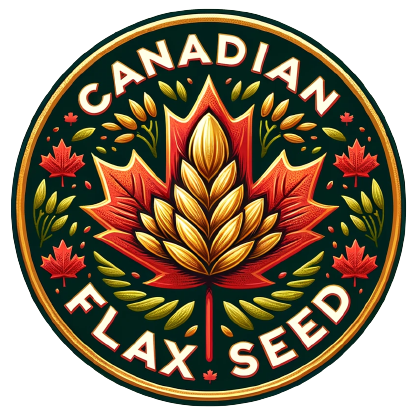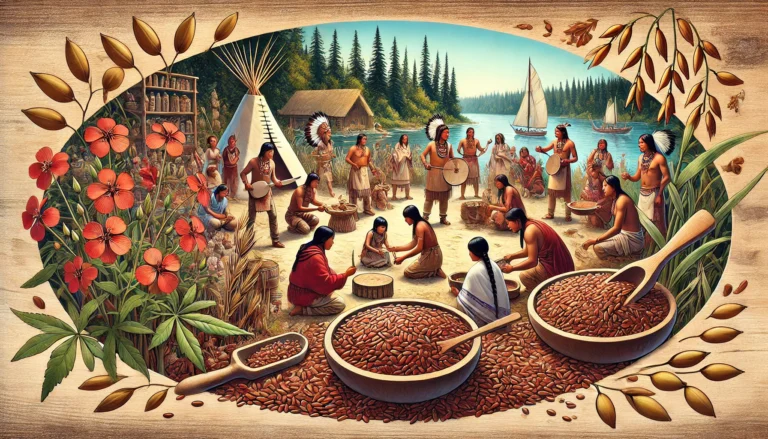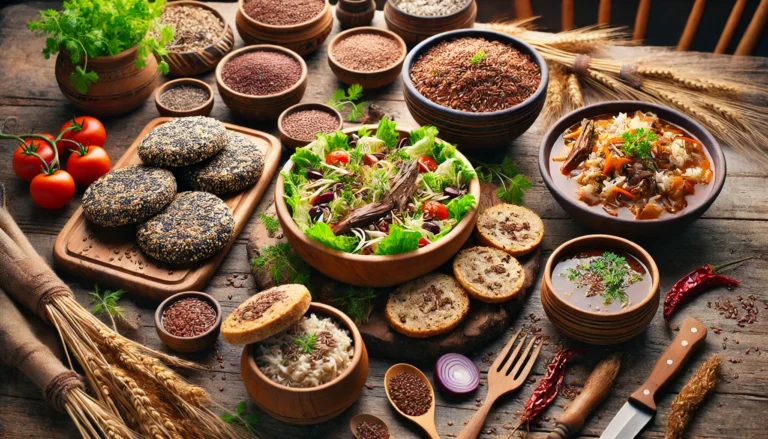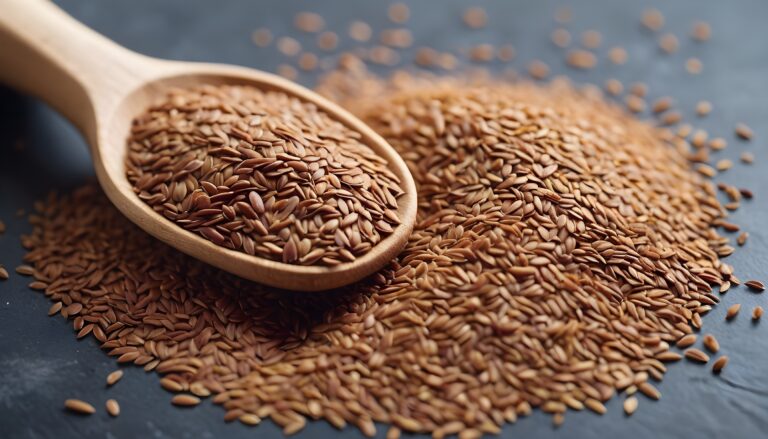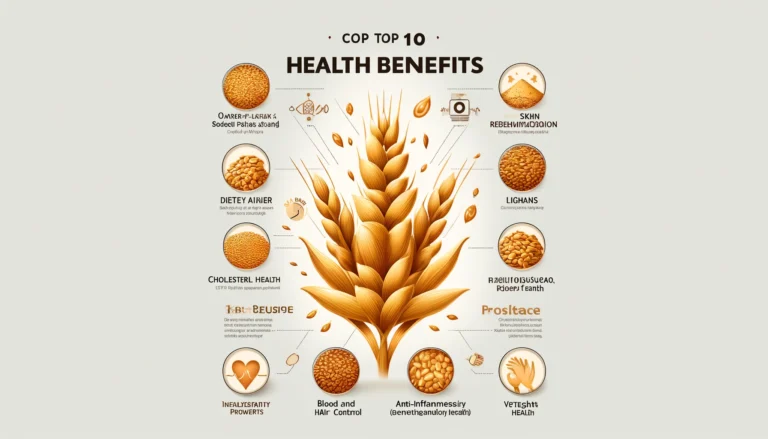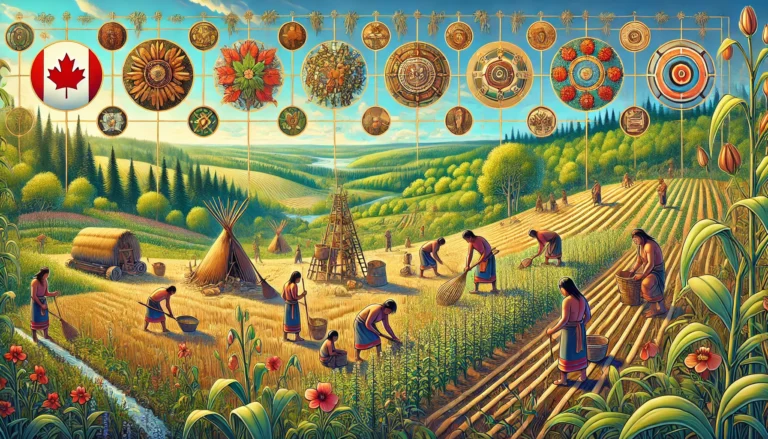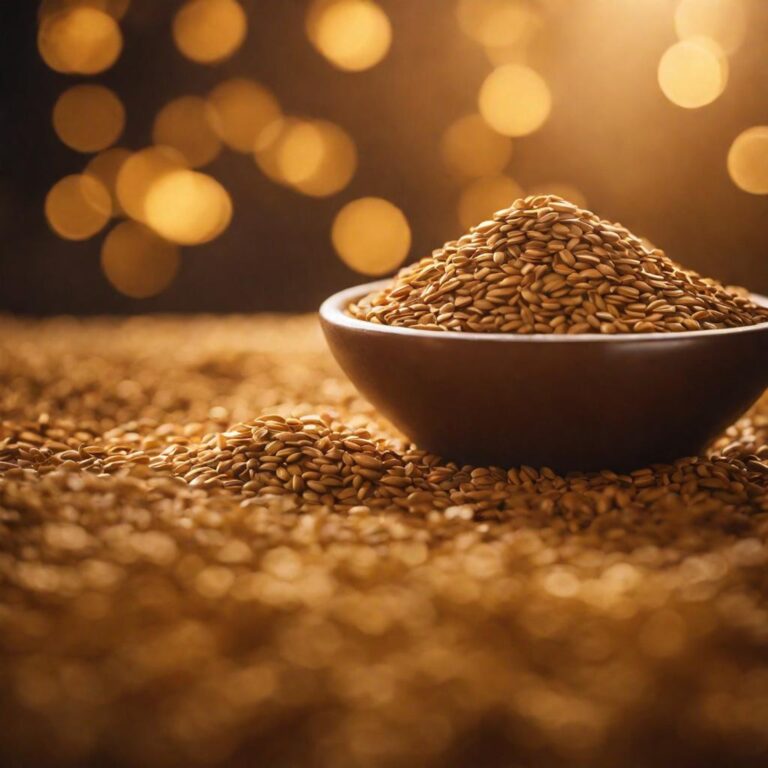Golden Threads of History: Flaxseeds in Early Canadian Cuisine
In the heart of early Canadian communities, amidst the rugged landscapes and pioneering spirit, one humble ingredient held a significant place on the dining table – flaxseeds. These tiny, golden threads of nature’s bounty not only sustained early settlers but also wove a rich tapestry of culinary traditions that still influence Canadian cuisine today. Join us on a journey through time as we explore the historical significance and culinary marvels of flaxseeds in early Canadian communities.
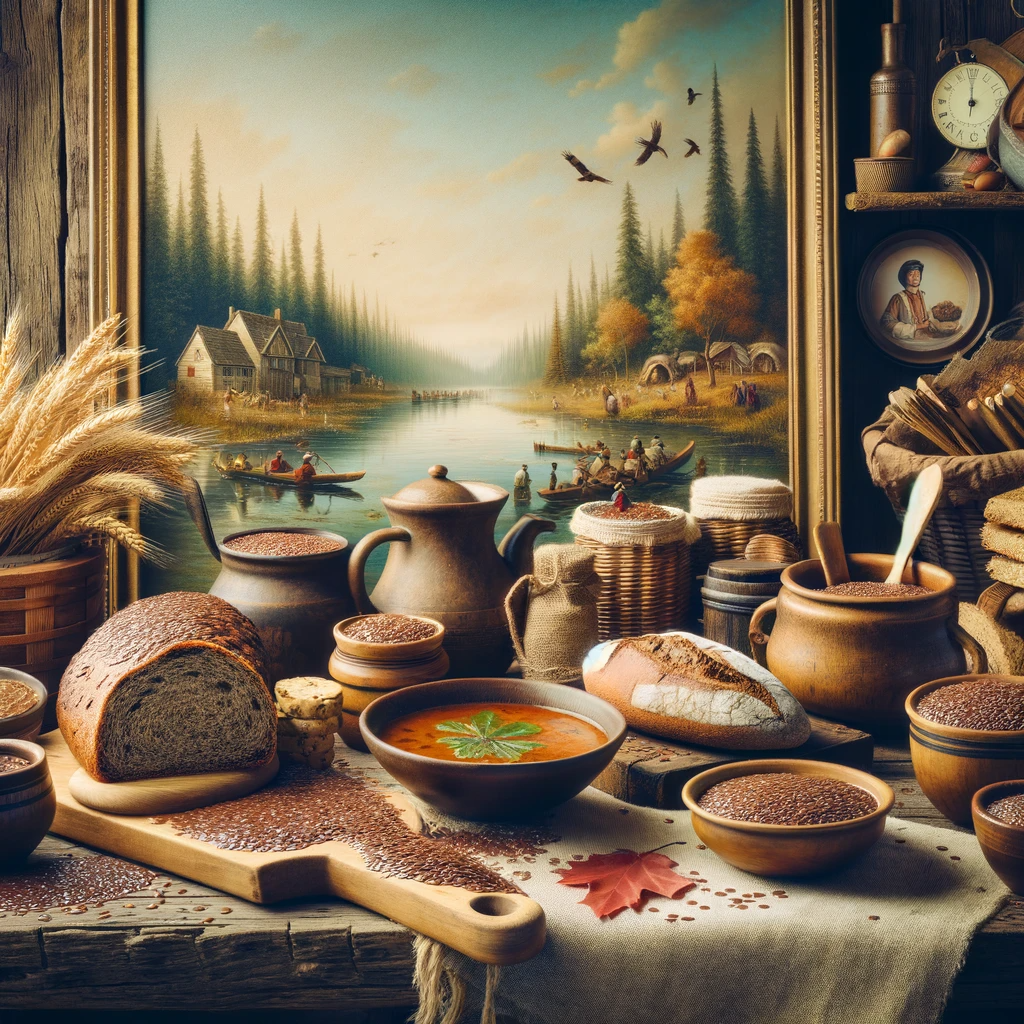
Flaxseeds: The Golden Grains of Survival
Flaxseeds were more than just a food source in early Canadian settlements; they were a lifeline. Their versatility allowed settlers to create nourishing meals even in the harshest conditions. From the indigenous peoples who first introduced flax cultivation to European settlers, to the fur traders and pioneers who relied on them for sustenance, these golden grains became a symbol of resilience and adaptation.
A Flaxseed Feast: Culinary Creativity
Early Canadians ingeniously incorporated flaxseeds into their daily meals, demonstrating culinary creativity that still inspires modern chefs. Flaxseed bread, a staple in many households, provided sustenance during long, harsh winters. The seeds were also used to thicken soups and stews, adding a nutty richness to these humble dishes. Flaxseed oil, with its distinct flavor, served as a cooking medium and a source of essential fatty acids.
Beyond the Table: Flax as Fiber and Fabric
Flaxseeds offered more than just nutrition; they played a vital role in clothing and shelter. The fibers from flax plants were used to weave linen textiles, providing early Canadians with clothing that was durable and suited to their environment. The cultivation of flax for textiles further connected settlers to their European heritage, as linen was a well-established fabric in their homelands.
The Cultural Legacy of Flaxseeds
As generations passed, the cultural legacy of flaxseeds endured. The practice of growing and using flax continued to be passed down, intertwining with Canadian identity. Indigenous communities retained their traditional knowledge of flax cultivation, ensuring its preservation. In French-speaking communities, flax remained a symbol of cultural heritage, as reflected in traditional recipes and artisanal crafts.
Flaxseeds Today: A Modern Renaissance
While flaxseeds played a pivotal role in early Canadian history, their significance has not diminished with time. In fact, they are experiencing a modern renaissance as a superfood rich in essential nutrients. Today, flaxseeds are celebrated for their health benefits, including their high fiber content and omega-3 fatty acids. They are embraced in contemporary cuisine, appearing in smoothie bowls, granola, and as an egg substitute in vegan recipes.
Conclusion
The story of flaxseeds in early Canadian communities is a testament to the resilience and adaptability of the people who carved a life in the rugged Canadian wilderness. These tiny seeds were not merely a source of sustenance; they were threads that wove a cultural and culinary tapestry. As we uncover the secrets of flaxseeds in early Canadian cuisine, we gain a deeper appreciation for the enduring legacy of this unassuming but invaluable ingredient.
